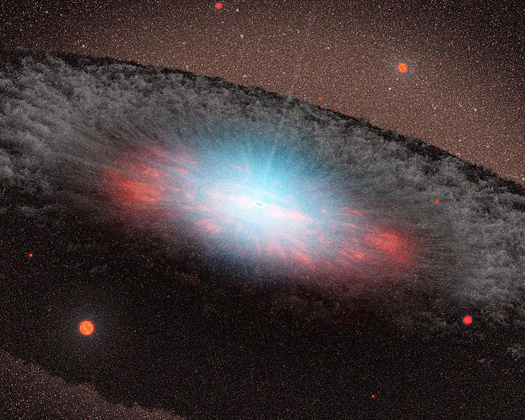

Lurking in a distant supermassive black hole there exists a reservoir of water as big as 140 trillion oceans, the largest repository of water in the universe and 4,000 times more than exists in the Milky Way. Two teams of astronomers discovered this mass of water 12 billion light years away, where it manifests as vapor spread across hundreds of light years.
The reservoir was found spread around the gaseous region of a quasar, a luminous compact region at the center of a galaxy and fueled by a black hole. This discovery shows that water can be found throughout the universe, even early on. While that is not necessarily news to scientists, water has never been found this far away before. The light from the quasar (the APM 08279+5255 quasar in the constellation Lynx, to be exact) took 12 billion years to get to Earth, meaning that this mass of water existed when the universe was only 1.6 billion years old.
Beginning observations in 2008, one group used a tool called Z-Spec at Caltech Submillimeter Observatory in Hawaii and the other used the Plateau de Bure Interferometer in the French Alps. These instruments observe millimeter and submillimeter wavelengths which allow for the discovery of trace gases (or huge reservoirs of water vapor) in the early universe. The detection of several spectral signatures of water in the quasar gave researchers the information needed to determine the enormous size of the reservoir.
